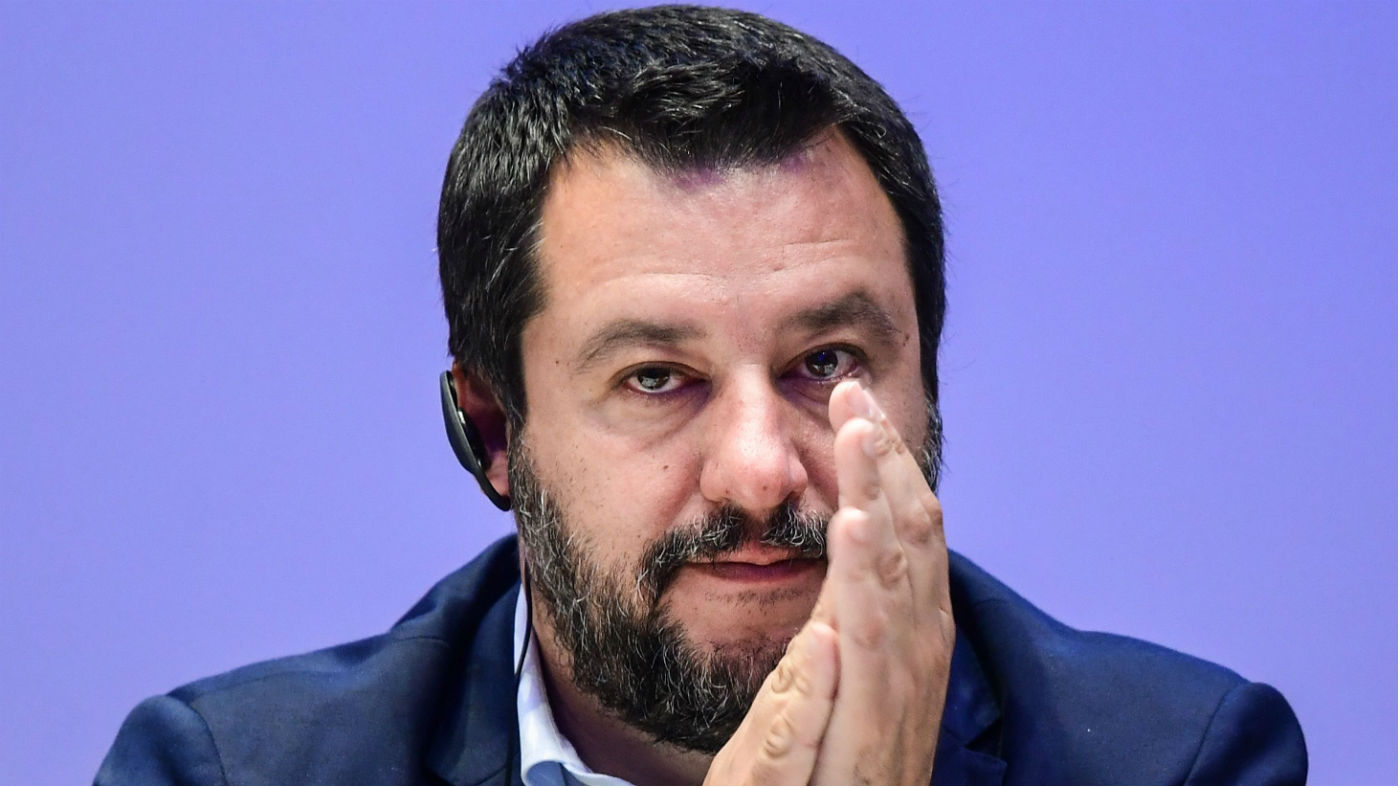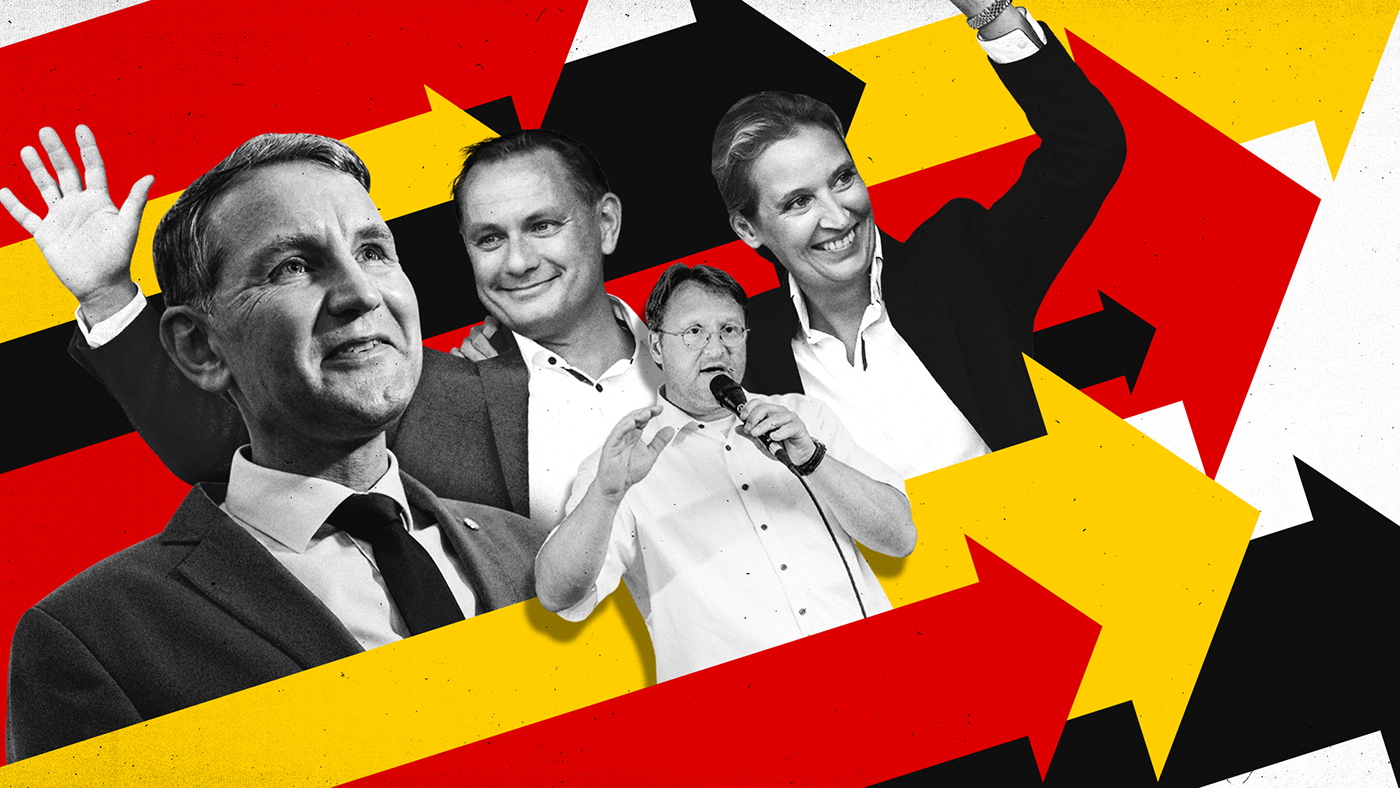Italy’s ruling party accused of taking illegal Russian money
Investigation launched into whether far-right League sought funds from Russian oil deal

A free daily email with the biggest news stories of the day – and the best features from TheWeek.com
You are now subscribed
Your newsletter sign-up was successful
Italy’s far-right ruling League party is being investigated over allegations it sought illegal funds from a Russian oil deal, in the latest evidence of high-level collusion between far-right European populist parties and Moscow.
Prosecutors in Milan have opened an inquiry into following an investigation by L’Espresso magazine that alleged an arrangement to sell three million tonnes of diesel to an Italian oil company by Russian representatives close to Vladimir Putin’s government.
The allegations centre on a meeting between a member of League leader and deputy prime minister Matteo Salvini’s entourage, two other Italians and three Russians in Moscow last October.
The Week
Escape your echo chamber. Get the facts behind the news, plus analysis from multiple perspectives.

Sign up for The Week's Free Newsletters
From our morning news briefing to a weekly Good News Newsletter, get the best of The Week delivered directly to your inbox.
From our morning news briefing to a weekly Good News Newsletter, get the best of The Week delivered directly to your inbox.
This week, BuzzFeed News published an audio recording it said was of that meeting “in which a close aide of [Salvini] and the other five men can be heard negotiating the terms of a deal to covertly channel tens of millions of dollars of Russian oil money to Salvini’s party, the League”.
Political parties are forbidden from accepting donations from foreign organisations under Italian law.
Salvini has denied the allegations, telling reporters that the League party “never took a rouble, a euro, a dollar or a litre of financing vodka from Russia”.
“There’s no evidence that the deal, which would have violated Italian campaign-finance law, ever happened. But that’s hardly the point,” says The Atlantic. “The audio showed incontrovertible if shadowy aspects of Russian reach into European politics and raised questions about business dealings in the sottobosco, or undergrowth, of the League.”
A free daily email with the biggest news stories of the day – and the best features from TheWeek.com
The Guardian, meanwhile, says the claims “raised questions about the relationship between the Kremlin and the anti-immigrant party”, which is in a coalition government with the anti-establishment Five Star Movement.
According to the BBC, “Salvini favours closer relations with Russia and has paid several visits to Moscow in recent years. He has expressed admiration for President Putin and denounced EU sanctions on Russia on a number of occasions.”
“If money did change hands it would not be the first time a far-Right politician has accepted money from the Russians,” says The Daily Telegraph.
Marine Le Pen, the leader of the National Assembly, took €11m in loans from Russian banks in 2014 while in Austria, far-Right FPO leader Heinz-Christian Strache stepped down after he was filmed discussing a deal where public contracts would be swapped for Russian campaign support.
Brexit campaign financer Arron Banks has also been accused of discussing diamond and gold deals with the Russian embassy to fund the 2016 EU referendum and as a result is under investigation by the National Crime Agency.
-
 Political cartoons for February 16
Political cartoons for February 16Cartoons Monday’s political cartoons include President's Day, a valentine from the Epstein files, and more
-
 Regent Hong Kong: a tranquil haven with a prime waterfront spot
Regent Hong Kong: a tranquil haven with a prime waterfront spotThe Week Recommends The trendy hotel recently underwent an extensive two-year revamp
-
 The problem with diagnosing profound autism
The problem with diagnosing profound autismThe Explainer Experts are reconsidering the idea of autism as a spectrum, which could impact diagnoses and policy making for the condition
-
 AfD local election win: watershed moment for far-right in Germany?
AfD local election win: watershed moment for far-right in Germany?Talking Point Discontent over immigration and Berlin’s green policies appears to have fuelled support for populist party
-
 Home Office worker accused of spiking mistress’s drink with abortion drug
Home Office worker accused of spiking mistress’s drink with abortion drugSpeed Read Darren Burke had failed to convince his girlfriend to terminate pregnancy
-
 In hock to Moscow: exploring Germany’s woeful energy policy
In hock to Moscow: exploring Germany’s woeful energy policySpeed Read Don’t expect Berlin to wean itself off Russian gas any time soon
-
 Were Covid restrictions dropped too soon?
Were Covid restrictions dropped too soon?Speed Read ‘Living with Covid’ is already proving problematic – just look at the travel chaos this week
-
 Inclusive Britain: a new strategy for tackling racism in the UK
Inclusive Britain: a new strategy for tackling racism in the UKSpeed Read Government has revealed action plan setting out 74 steps that ministers will take
-
 Sandy Hook families vs. Remington: a small victory over the gunmakers
Sandy Hook families vs. Remington: a small victory over the gunmakersSpeed Read Last week the families settled a lawsuit for $73m against the manufacturer
-
 Farmers vs. walkers: the battle over ‘Britain’s green and pleasant land’
Farmers vs. walkers: the battle over ‘Britain’s green and pleasant land’Speed Read Updated Countryside Code tells farmers: ‘be nice, say hello, share the space’
-
 Motherhood: why are we putting it off?
Motherhood: why are we putting it off?Speed Read Stats show around 50% of women in England and Wales now don’t have children by 30